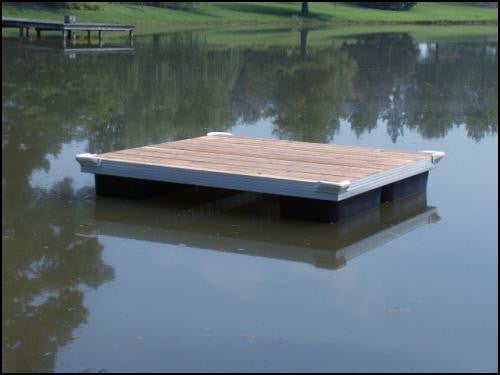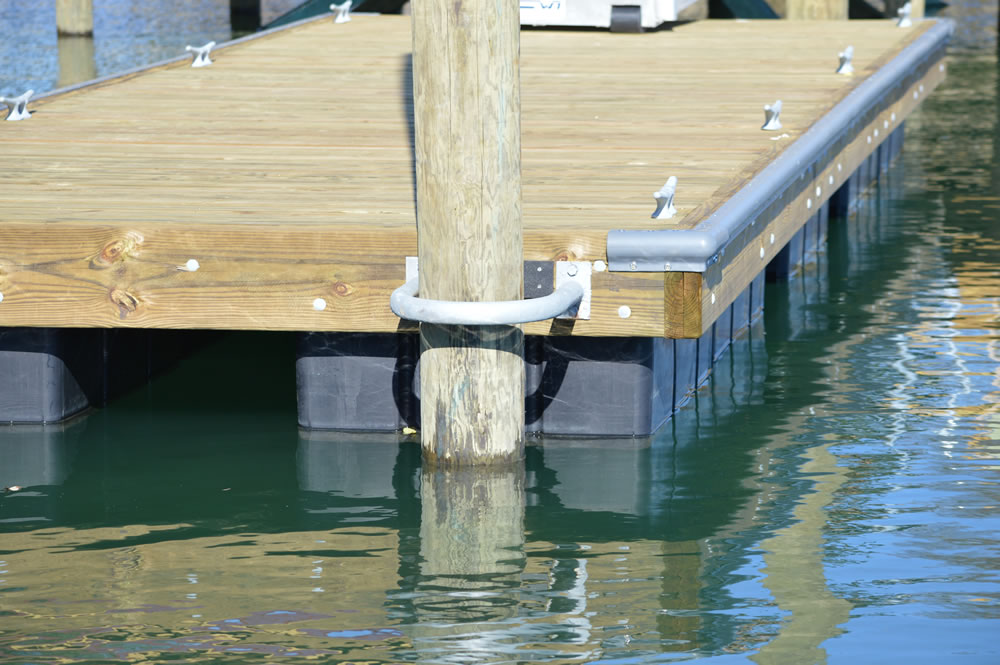Check out the Variety Of Floating Dock Solutions Designed to Suit Every Sailor's Requirements
Floating Docks: The Perfect Choice for Versatile Water Access
Floating docks existing an engaging solution for a range of water accessibility requires, offering flexibility that transcends standard mooring alternatives. Their ability to adapt to changing water degrees while making certain security and safety makes them especially helpful for both commercial and recreational applications. Moreover, the modular nature of floating docks helps with personalization, dealing with certain demands. However, the nuances of installation and maintenance, along with the series of applications, necessitate a closer exam to totally value their prospective benefits and ramifications for waterway access strategies.
Benefits of Floating Docks
Floating docks offer numerous benefits that enhance water accessibility for different applications. Their ability to fluctuate with transforming water levels makes them particularly helpful in environments with rising and fall tides or seasonal variants. This versatility ensures that vessels can quickly moor without worry for the water's depth, supplying a reputable platform for leisure, commercial, and industrial usages.
Furthermore, floating docks are commonly created from resilient materials that stand up to corrosion, making them suitable for long-lasting usage in aquatic settings. Their installation is commonly much less invasive than conventional set docks, lowering the environmental impact and helping with quicker implementation (floating docks). This flexibility enables for much easier moving or reconfiguration according to customer demands or ecological adjustments
Safety and security is an additional crucial advantage; floating docks can offer stable access for individuals boarding or disembarking from watercrafts and minimize the danger of mishaps connected with unstable surfaces. They can be made to fit a selection of accessories, such as cleats and fenders, improving functionality. Overall, floating docks represent an effective remedy for enhancing water gain access to across diverse sectors while promoting safety and ecological sustainability.

Kinds of Floating Docks
Numerous kinds of floating docks provide to different demands and environments, each created with specific functions to maximize functionality. The most usual types include modular docks, which contain interlocking areas that permit simple customization and growth. These docks are suitable for recreational usage, as they can be tailored to fit various watercraft sizes and water problems.
One more preferred choice is the stationary floating dock, which stays secured in area but floats with altering water levels. floating dock builder. This type is particularly fit for locations with minimal tidal variations, providing stable access for fishing or swimming. Furthermore, there are drive-on docks, which feature a sloped layout that allows boats to quickly drive on and off, making them appropriate for personal watercraft and smaller vessels
For industrial applications, durable floating docks are available, constructed from reinforced materials to stand up to substantial lots and extreme aquatic atmospheres. Last but not least, eco-friendly floating docks utilize sustainable products and layouts to decrease ecological effect, commonly integrating functions like greenery to support local wild animals. Recognizing the different kinds of floating docks guarantees that individuals can select one of the most proper service for their particular needs.
Installment Process Overview
An effective setup of floating docks calls for cautious planning and focus to detail to make certain optimum efficiency and safety and security. The preliminary action entails examining the site conditions, including water deepness, existing, and possible challenges. This assessment educates the choice of the appropriate dock products and style customized to the certain atmosphere.
Next, acquiring necessary licenses is vital, as several jurisdictions have regulations pertaining to building on water bodies. As soon as authorizations are secured, the setup can proceed. Begin by preparing the foundation, which may entail anchoring systems or pilings tailored to the dock kind and local conditions.
Following the structure arrangement, assemble the dock sections according to maker requirements. Ensure that all elements are safely attached and aligned to withstand environmental anxieties. Placement the dock in the designated area, ensuring here it is level and steady.

Upkeep Tips and Ideal Practices
After the setup procedure is total, ongoing maintenance plays an important role in making sure the durability and performance of floating docks. Regular inspections ought to be conducted to identify any kind of indicators of wear, deterioration, or damages - floating docks. Inspect for any type of loose installations, cracks, or splitting up in the dock sections, as these can compromise architectural stability
Cleaning up the dock is necessary to remove debris, algae, and other accumulation that can affect its look and safety. Use a gentle stress laundry occasionally to preserve tidiness without causing damage to the surface area. Additionally, using a safety sealer news every few years can aid improve durability and stand up to ecological wear.
Focus on the mooring lines and anchors, guaranteeing they are totally free and safe from deterioration. Replace any kind of abject components quickly to avoid risks. Seasonal modifications might additionally be needed; throughout extreme climate condition, repositioning or enhancing the dock can prevent damage.
Applications for Floating Docks
Floating docks offer a wide range of applications, providing to both recreational and commercial requirements. In entertainment settings, they give smooth access to waterways for tasks such as boating, fishing, and swimming. Their flexible nature enables for setup in varying water degrees, making certain risk-free and steady gain access to regardless of tidal variations.
Commercially, floating docks are vital for marinas and waterfront services. They help with the docking of vessels, enabling effective filling and dumping of products. Their modular design allows for easy development or reconfiguration to fit changing service needs, making them suitable for boat services, scenic tour operations, or angling charters.
Furthermore, floating docks are utilized in ecological applications such as water research study and habitat restoration. They can serve as platforms for scientific studies, monitoring water quality, or performing wildlife surveys without troubling delicate ecological communities.
In commercial contexts, floating docks are used in building jobs, offering accessibility to hard-to-reach locations for equipment and personnel. Their convenience, sturdiness, and marginal influence on the setting make them an optimum selection for a broad range of applications, improving both functionality and availability in numerous water-based settings.
Conclusion
In conclusion, floating docks stand for an ideal option for varied water access requires, owing to their flexibility, sturdiness, and modular design. These structures promote secure mooring for various applications while reducing ecological effect throughout setup. The minimized upkeep requirements further boost their functionality. Floating docks offer as a valuable asset for leisure, business, and environmental jobs, making sure trusted accessibility to rivers and promoting lasting methods in water environments.
Floating docks existing an engaging remedy for a variety of water gain access to requires, using adaptability that transcends typical mooring alternatives.Floating docks deal numerous benefits that enhance water access for different applications. Generally, floating docks represent a reliable option for improving water gain access to throughout navigate here varied sectors while promoting security and environmental sustainability.
One more preferred option is the stationary floating dock, which stays secured in location yet floats with transforming water levels.In final thought, floating docks represent an optimum remedy for diverse water gain access to needs, owing to their adaptability, durability, and modular design.